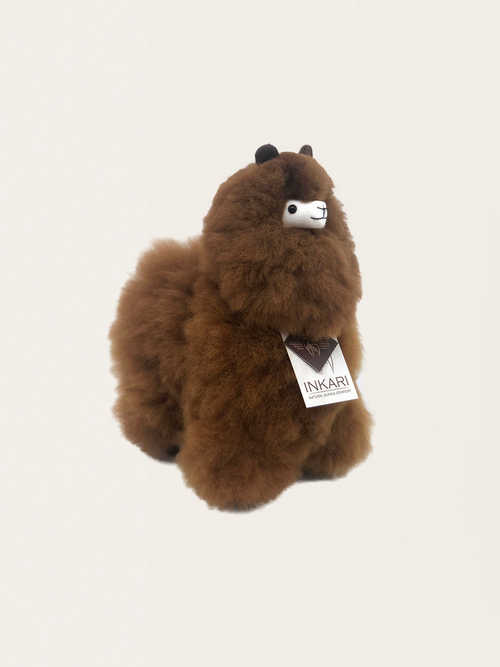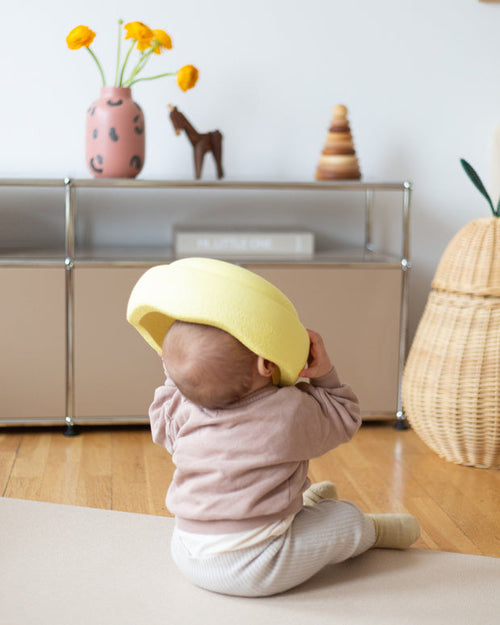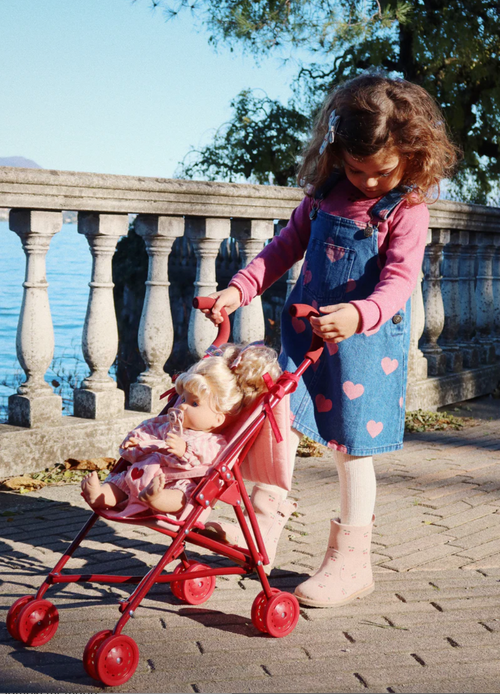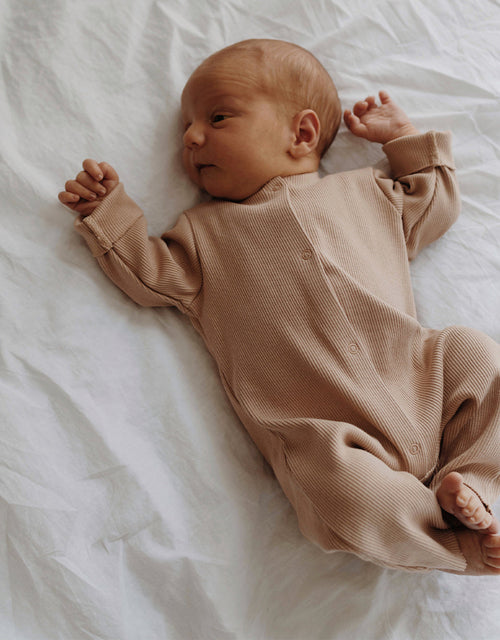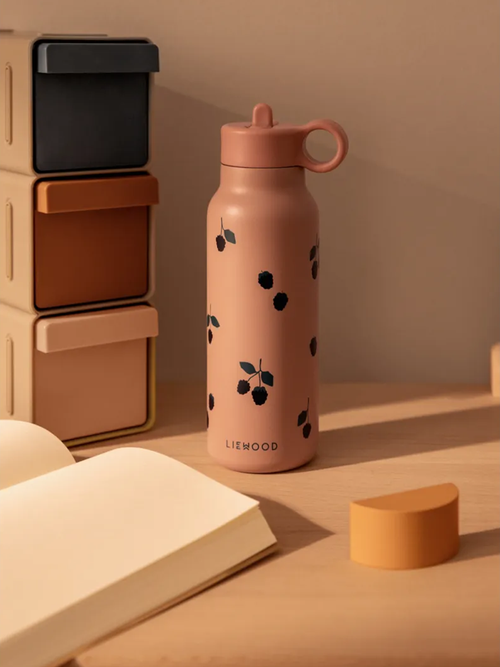Can a newborn drink water? This question worries many young children. parents, especially on hot summer days, when they worry about the appropriate hydrating your little one. This is a topic that requires full understanding and considerations, so we have prepared a detailed discussion to dispel any doubts and help you make informed decisions.
Why Should Newborns Not Drink Water?
Newborns, i.e. children up to approximately 28 days of age, do not need additional water. The main reason is that breast milk or formula milk provides all necessary nutrients, including adequate amounts of fluids, which fully cover the child's needs. Water does not provide any additional nutritional value, and may even cause harm, such as washing out electrolytes and decreased appetite for milk, which leads to inappropriate nutrition.
For newborns, the caloric content of the food they consume is crucial. Water is not contains no calories, which means it can only weaken the child, not providing it with any necessary energy. This is especially important in in the case of breastfed babies, because mother's milk is perfectly matched proportions of ingredients to the baby's needs and more frequent breastfeeding on hot days it naturally provides more fluids.
When Can a Baby Drink Water?
Water is usually introduced into a child’s diet after 6 months of age. month of life, along with expanding the diet. This is the moment when the baby begins to learn about new products, such as vegetables, fruit, cereals and meat. as the diet expands, the need for additional fluids begins to appear, which are no longer covered solely by milk.
The introduction of water should be gradual, initially offered in small amounts. quantities. It's best to start with a few teaspoons a day, and as the child grows, will develop your drinking skills, you can switch to drinking from a cup a non-spill cup or even a regular cup. It is recommended that water be available at all times. for the baby, but do not force it to drink – the baby will reach for it only when when he feels thirsty.
Water and Breastfeeding – Is Extra Water Needed?
For breastfed babies, water is not needed until about 6 months of age. months of age. Breast milk has natural adaptive properties to the needs of the child, and in the case of a higher ambient temperature, its composition to provide more water. In practice, this means that a baby fed on request will always receive the appropriate amount of fluids. If the baby feels thirst, he will simply ask to be fed more often.
Formula-fed babies also do not need additional water, how much their fluid requirements are met with appropriately prepared mixture. Exceptions may be hot days or situations when the child has symptoms dehydration, such as a small number of wet diapers or dry mouth – in such cases In some cases, you can consult your pediatrician to determine whether it is necessary giving water.
What Are the Potential Risks of Giving Water to a Newborn?
Giving water to a newborn before 6 months of age is associated with many potential threats. Here are some key aspects worth keeping in mind attention:
- Nutrient Dilution – Watering can cause the baby to take in less milk, which may affect his development. Caloric deficiency can delay weight gain, which is especially dangerous for the youngest.
- Risk of Hyponatremia – Too much water can lead to to disturbances in the electrolyte levels in the child's body. This condition, called hyponatremia, can be very dangerous because it affects the proper brain functioning.
- Feeding Rhythm Disturbance – Giving water may cause the baby will feel less need for milk, which may lead to disorders feeding rhythm and reduced milk production in the breastfeeding mother.
What Water Is Suitable for Babies?
When it's time to introduce water into your baby's diet, remember to: choosing the right water. The water should be low-mineralized and free of harmful substances. Spring water or special water for infant formula, which may be available in pharmacies or stores, is the best choice. Remember to boil and cool tap water before serving it. – this minimizes the risk of bacterial infection.
It is also worth remembering to avoid highly mineralized and carbonated waters, which may be too burdensome for the baby's body. It works best bottled water designed especially for the youngest, which meets appropriate standards and is safe.
When Can Tap Water Be Given?
Giving tap water to infants is controversial. In many countries Tap water is safe to drink, but it is recommended for infants boiling to eliminate potential bacteria and contaminants. If tap water is of good quality, it can be served after boiling and cooling. However, for younger children, bottled water is preferred, designed especially for babies.
What Are the Alternatives to Water?
For babies after 6 months who start consuming other foods besides water you can give mild herbal teas, e.g. chamomile or fennel, which support digestion and have a soothing effect. However, it is important not to sweeten teas with sugar or honey - excess sugar can be harmful, and honey may contain Clostridium botulinum bacteria, which are dangerous for infants.
How to Tell if Your Child is Dehydrated?
Dehydration in infants can be very dangerous, so It's worth knowing how to recognize its symptoms. Warning signs may include:
- Dry Skin and Lips – If your child's lips are dry, it may be indicate a lack of fluids.
- Reduced number of wet diapers – Newborns should wet the diaper at least 6-8 times a day. Reduced number of wet diapers diapers may suggest dehydration.
- No tears when crying – If a baby cries without tears, this is a sign that he may be lacking fluids.
If you suspect dehydration, contact your doctor as soon as possible. doctor to assess the child's condition and recommend appropriate treatment.
Tips for Parents on Keeping Their Child Hydrated
- Frequent Breastfeeding : It's worth it on hot days put your baby to the breast more often to ensure he or she gets the right amount fluids. Breast milk adapts to the baby's needs by increasing the amount of water in its composition.
- Child Observation : Parents should pay attention to child's behavior. If the child seems lethargic, irritable, and his mouth are dry, this may indicate a lack of fluids.
- Learning to Drink Cups : Introducing Water into Your Diet child, it's worth taking care of the appropriate accessories. In our store you will find a wide selection of non-spill cups and water bottles that will help your child learn drinking alone.
- Avoid Juices : While it may be tempting to give juice, it is worth it. avoid. Juices often contain a lot of sugar, which can lead to tooth decay and excessive weight gain. Water should be the primary hydration fluid kid.
Summary – Can a Newborn Drink Water?
Giving water to a newborn before the age of 6 months is not recommended. recommended because breast milk or formula milk provides all the necessary nutrients and properly hydrate the body baby. Only after starting to expand their diet does water become important for child's health, as a supplement to his daily hydration.
Remember that the water should be properly selected – low-mineralized, boiled or specially intended for babies - and introduced gradually, as the child develops new feeding skills. If In case of doubt, it is always worth consulting a pediatrician who will help you make the right decision. the best decision for your baby's health.
In our store you will find a wide selection of cups, bottles and accessories, which will help your child learn to drink and ensure a comfortable transition to water after exclusively breastfeeding. We encourage you to read our offer!

